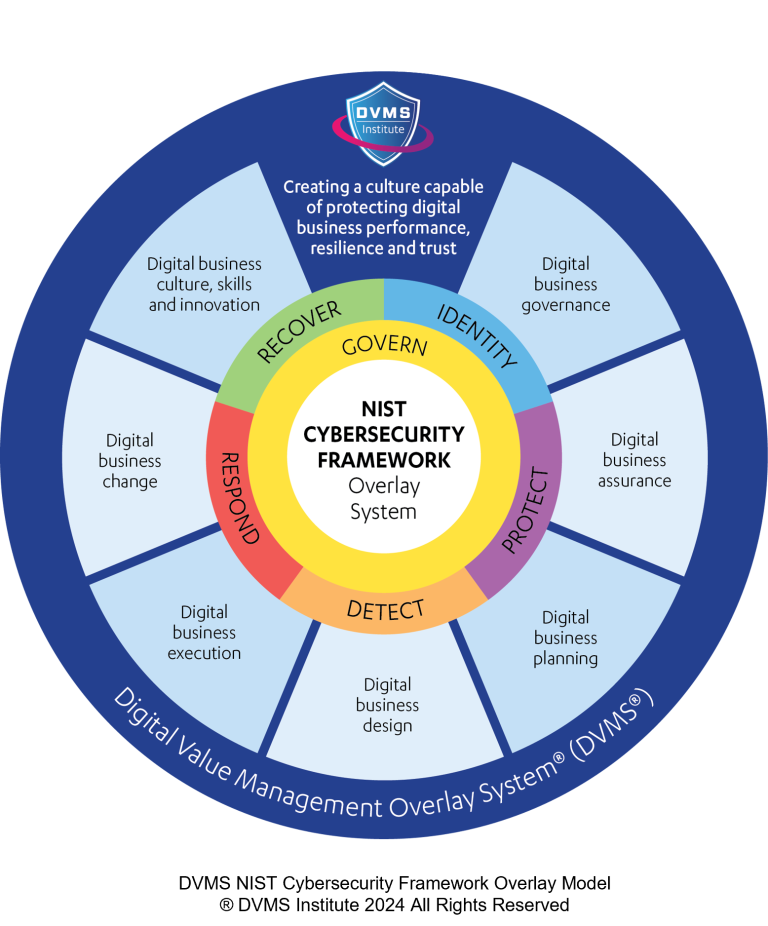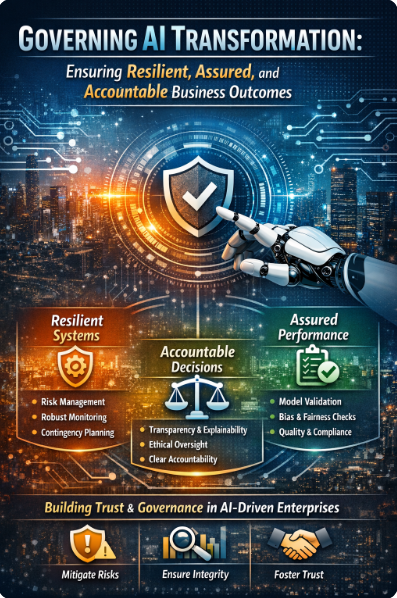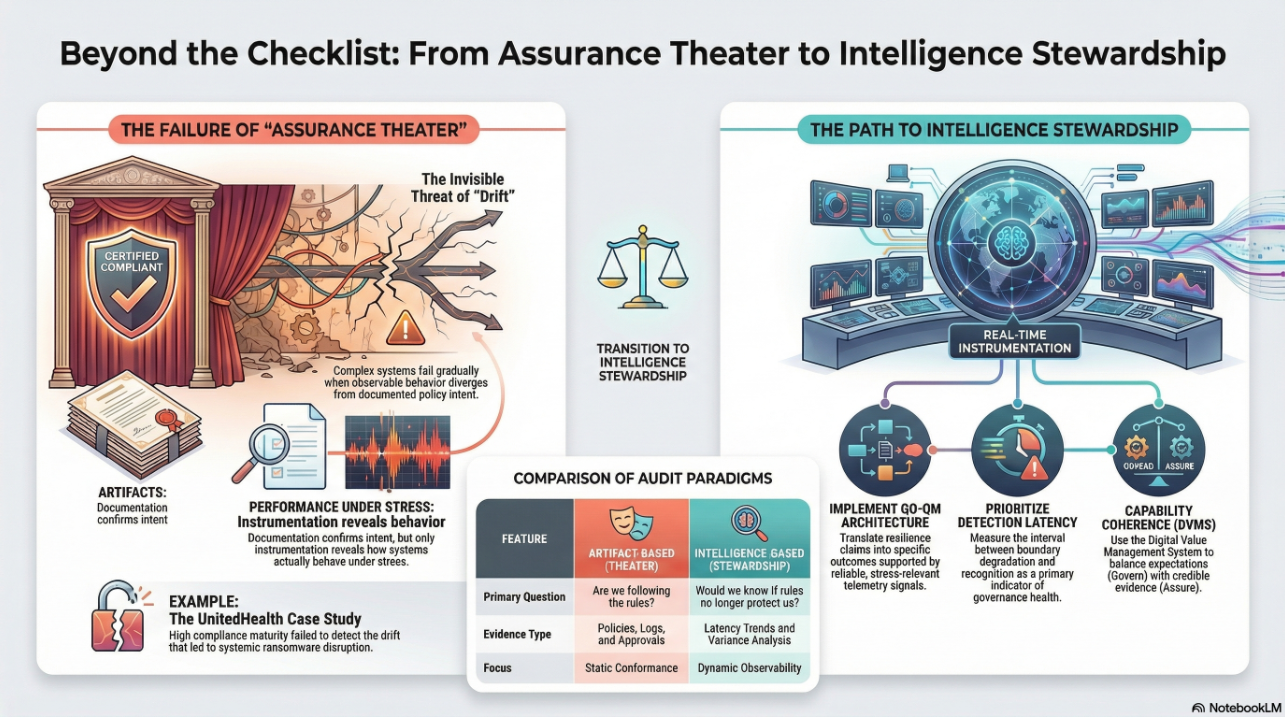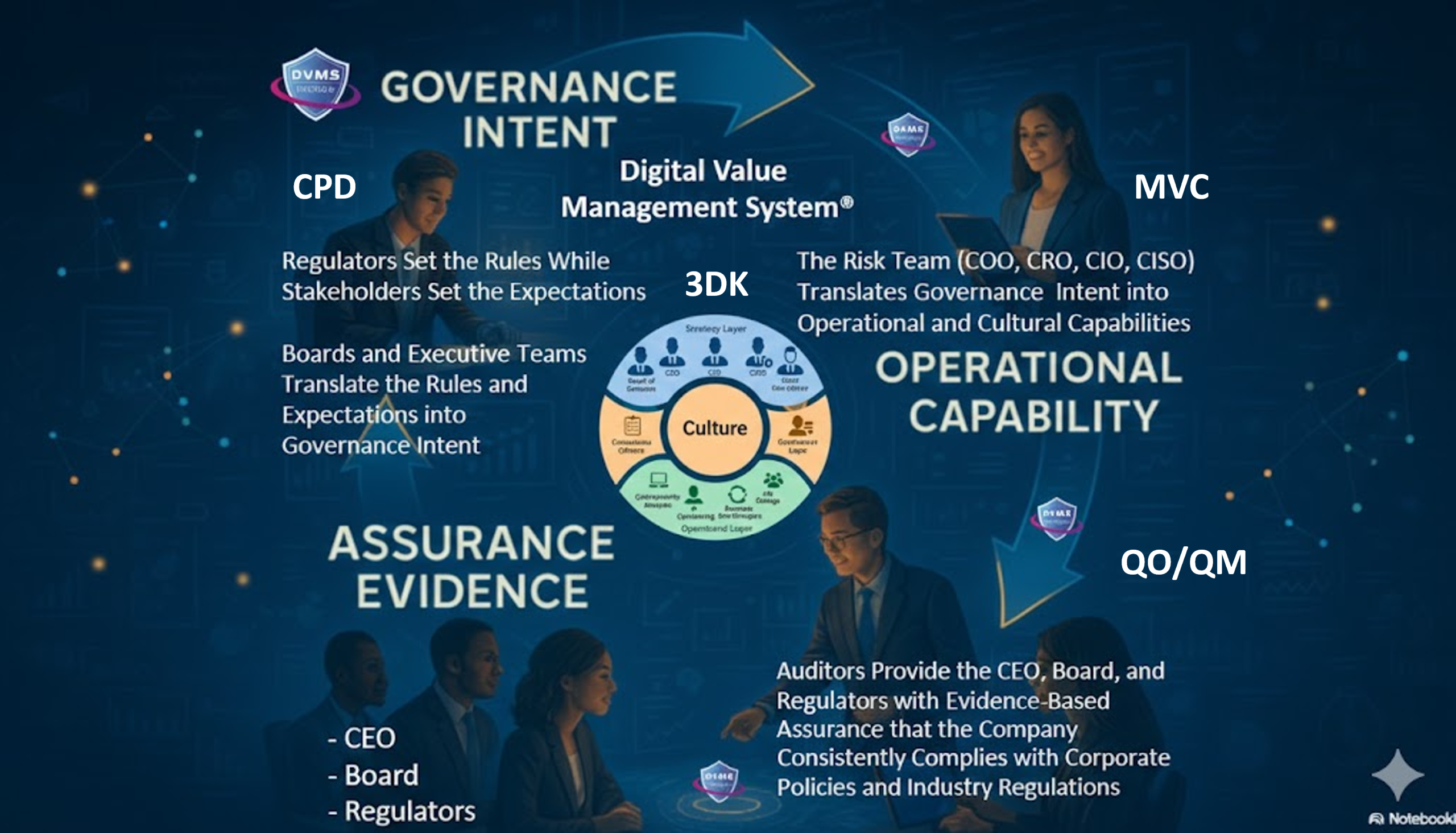The Imperative of Cyber Risk Mitigation for Digital Business Success
Rick Lemieux – Co-Founder and Chief Product Officer of the DVMS Institute
The contemporary business landscape is undeniably digital. From startups to multinational corporations, organizations of every size and complexity have embraced technology to streamline operations, innovate, and connect with customers. While this digital transformation has unlocked unprecedented opportunities, it has also introduced a new and formidable challenge: cyber risk. Protecting digital assets, data, and systems has evolved from a mere IT concern to a strategic imperative underpinning business performance, resilience, and trust.
Cyber threats, ranging from sophisticated attacks orchestrated by nation-state actors to opportunistic exploits by cybercriminals, pose a constant and evolving risk. A successful cyberattack can have far-reaching consequences, disrupting operations, damaging brand reputation, and eroding customer trust. The financial implications can be staggering, encompassing direct losses, legal expenses, and the cost of business interruption. Moreover, a data breach can lead to hefty fines and penalties in industries subject to stringent regulations, such as healthcare, finance, and government.
Beyond the immediate financial impact, a cyberattack can inflict long-term damage to an organizational competitive advantage. Disruptions to critical systems and processes can hinder productivity, stifle innovation, and erode market share. Customers increasingly expect businesses to safeguard their personal information. A data breach can lead to a loss of customer confidence, with severe repercussions for customer acquisition and retention. In an era where reputation is paramount, a cyberattack can quickly become a public relations nightmare, damaging the organizational brand image and eroding stakeholder trust.
To thrive in this digital age, organizations must proactively mitigate cyber risk. This requires a holistic approach encompassing technology, people, processes, organizational structures, and leadership capabilities. Robust cybersecurity infrastructure, including firewalls, intrusion detection systems, and encryption, is essential to deter and detect threats. However, technology alone is insufficient. Employees must be trained to recognize and respond to cyber threats, and a culture of security awareness must be fostered throughout the organization.
Effective risk management involves identifying, assessing, and prioritizing cyber risks. By understanding the potential impact of different threats, organizations can allocate resources appropriately and implement targeted countermeasures. Regular security audits and vulnerability assessments help identify weaknesses and inform remediation efforts. Incident response plans are crucial for minimizing the damage caused by a successful attack and facilitating a swift recovery.
Building resilience is another critical component of cyber risk mitigation. Organizations must be able to withstand and recover from cyberattacks with minimal disruption. This requires robust business continuity and disaster recovery plans. Regular testing of these plans ensures that the organization is prepared to respond effectively in the event of an incident.
Trust is the cornerstone of any successful business relationship. In the digital age, trust is inextricably linked to cybersecurity. Customers, partners, and investors expect organizations to protect their data and systems. Organizations can build trust and strengthen their relationships with stakeholders by demonstrating a solid commitment to managing cybersecurity risk to protect digital value.
Cyber risk mitigation is no longer an option but a business imperative. Organizations that fail to prioritize cybersecurity risk management expose themselves to significant financial, reputational, and operational risks. By investing in robust cybersecurity measures, fostering a culture of security awareness, and building resilience, organizations can protect their digital business performance, safeguard their reputation, and maintain the trust of their clients. In today’s interconnected world, cybersecurity is not just a technical challenge but a strategic imperative underpinning long-term success.
About the Author

Rick Lemieux
Co-Founder and Chief Product Officer of the DVMS Institute
The DVMS Institute teaches organizations of any size, scale, or complexity an affordable approach to mitigating cyber risk to protect digital business performance, resilience, and trust.
Rick has 40+ years of passion and experience creating solutions to give organizations a competitive edge in their service markets. In 2015, Rick was identified as one of the top five IT Entrepreneurs in the State of Rhode Island by the TECH 10 awards for developing innovative training and mentoring solutions for boards, senior executives, and operational stakeholders.
® DVMS Institute 2024 All Rights Reserved




